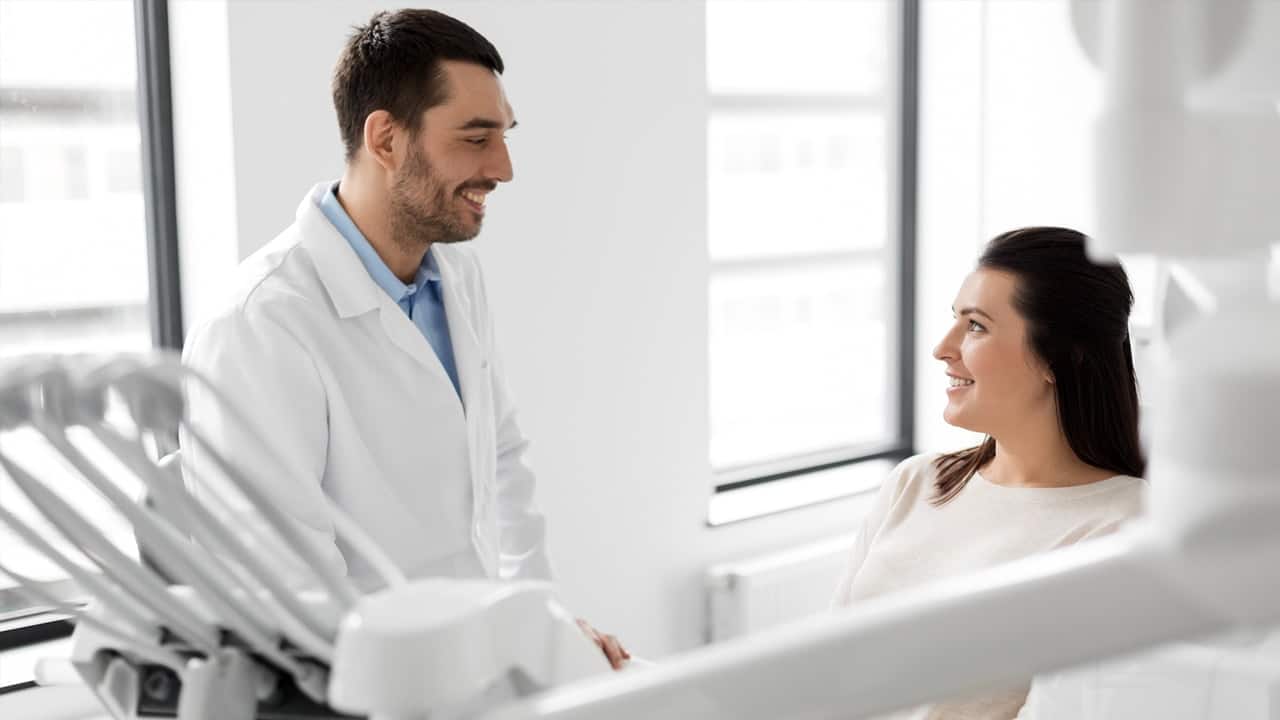
If caught early enough, oral cancer is very much treatable. That’s why, according to the National Cancer Institute, it is important to get oral cancer screenings even before symptoms begin to show. By getting regular, precautionary oral cancer screenings, patients either get reassurance that they’re in good oral health, or they are given opportunity to seek early treatment. If you are getting an oral cancer screening, here are a few things you can expect during the appointment.
Before Your Examination
In preparation for your oral cancer screening, your dentist may ask you to answer a few questions about smoking, discomfort when swallowing, and more. Your answers regarding lifestyle or recent pain/discomfort could help your dentist to determine whether or not further examination in particular parts of your teeth and gums will be necessary. Therefore, be certain to be honest in your answers and inform your dentist if you have noticed any small lumps or recent hoarseness in your voice. Also, if you noticed any differences in the way your tongue moves, be sure to let your dentist know. Finally, before your screening begins be certain to take out any removable devices or restorations (including dentures).
Visual Examination
During the visual element of your examination, your dentist will look over your face, lips, and neck as well as inside of your nose and oral cavity. They will be searching for any bumps, swelling, and asymmetries, as well as color patches, ulcerations, and other abnormalities. For this portion of the exam, your dentist will simply use a light, mirror, and tongue depressor to see clearly. Ultimately, the visual exam will feel like a standard physical.
Physical Examination
The next portion of your screening will be a physical exam. Your dentist will touch your head, cheeks, jaw, and oral cavity to check for pre-cancerous tissue such as unusual masses or nodules. They will also be able to determine if you have any tissue that has become immobile or if any areas cause you discomfort. While you may not typically experience pain in these areas, that does not necessarily mean that they are cancer-free. This is why it is so important to have a trained professional screen for these health issues.
Technological Advancements
During your examination, your dentist may use special tools to complete your oral cancer screening. For example, your dentist may use a special brush to remove cells for testing painlessly. They may also use a nasopharyngolaryngoscope, or a fiber optic camera, to examine your larynx and pharynx. All in all, these advancements in technology ensure the accuracy and thoroughness of your oral cancer screening.
Follow-up
If your dentist uncovers any abnormalities during your oral cancer screening, you may be asked to schedule future appointments for further screening. That said, requesting further examination does not necessarily signify a cancer diagnosis—this is often just a precautionary measure. If cancer is ultimately found, however, you can rest assured that treatment is often quite effective if caught early.
Are you in need of an oral cancer screening? Contact Manus Dental in Hyde Park, Lake Zurich, or Yorkville today!